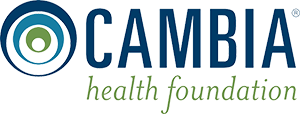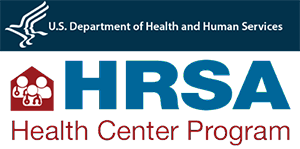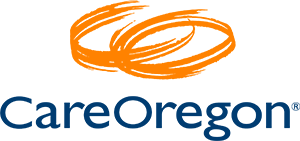Our Mission & Values
Mission: Transform primary health care.
Vision: Health equity for all Oregonians.
Values: Collaboration, Social Justice, Innovation, Integrity, Data.
Our History
The Oregon Primary Care Association (OPCA) was founded in 1984 by a group of safety net clinics and the Oregon Office of Health Policy. They sought to bring a community-centered, community-driven approach to health care. At the time, many communities in the state could not easily access or afford to receive care.
Our founding member clinics believed a statewide membership organization could facilitate the buildout of a patient-centered system, and that stable funding sources would be critical to expanding access to primary care services. OPCA became a trusted source for local health centers to find technical assistance, staff training, and guidance on reporting requirements for members to become federally qualified health centers (FQHCs) with access to federal funds.
As membership grew and evolved, OPCA identified new ways to support community health efforts. OPCA now facilitates peer network gatherings, develops training modules, coordinates site visits, builds learning collaboratives, and leads data-driven improvement projects. In addition, OPCA highlights the impact health centers have in their communities and advances policies which improve patients’ lives and the ability of health centers to serve them.
Today, OPCA’s members deliver integrated medical, dental, and behavioral health services to many of the state’s most vulnerable communities through over 270 locations statewide. Over 457,000 Oregonians receive their care at a community health center, including one in six people on the Oregon Health Plan. More than half of these patients live below the poverty line, and 71% live at or below 200% of the Federal Poverty Level.
Throughout our nearly 40 years of service, OPCA remains committed to community-based health system transformations which lead to better care, lower costs, and health equity.
OPCA’s areas of work at a glance
The Oregon Primary Care Association (OPCA) is the voice of Oregon’s Federally Qualified Health Centers (FQHCs), who deliver integrated medical, dental, and behavioral health services to over 457,000 Oregonians at more than 270 locations statewide. OPCA helps our members navigate state and federal policy, facilitates peer-to-peer learning, supports workforce development programs, and utilizes data-driven approaches to payment reform to further community-based health system transformation and health equity for all.
Training & Technical Assistance
In 2023, we:
- Conducted 76 events (both virtual and in-person)
- Produced 95 hours worth of training
- Shared training with more than 800 FQHC staff
- Facilitated 12 peer groups to help our members collaborate and learn from one another
Peer Groups
- Behavioral Health Leaders
- Clinician Leaders
- Communications Peers
- Dental Leaders
- Fiscal Leaders
- Executive Leaders
- HR Leaders
- Medical Leaders
- Nursing Leaders
- Operations Leaders
- Pharmacy Leaders
- Quality Improvement Collective
Through these Peer Groups, we aim to foster a culture of collaboration and shared learning.
Data Collection & Analysis
OPCA leads efforts to collect and interpret large data sets so that FQHCs can maximize their impact. For example, OPCA breaks down UDS data by legislative districts, allowing elected officials to better understand the impact of FQHCs on their communities.
Data is also essential in value-based payment programs. In 2013, with the OHA, Oregon was the first in the nation to implement an Alternative Payment and Advanced Care Model (APCM) for FQHCs, and our clinically integrated network launched an Accountable Care Organizations (ACOs) in October 2023.
Value-Based Care & Value-Based Pay
OPCA developed the Alternative Payment and Advanced Care Model (APCM) program in collaboration with OHA and FQHCs. Under APCM , the fee-for-service Medicaid reimbursement for health centers is converted into a per-member, per-month payment. With this, FQHCs are able to tailor services to the unique circumstances of their patients, as well as to adjust where, how, and what kind of care and services they provide. With this flexibility, FQHCs can focus on partnering with patients to support better health outcomes.
Coordinated Advocacy on Issues
OPCA’s Policy Committee tracks proposed bills and regulations which impact community health centers. OPCA wrote Senate Bill 608 in 2023, which is now law. Senate Bill 608 regulates the frequency and method by which pharmacist Professional Dispensing Fees are adjusted, in keeping with Centers for Medicare and Medicaid Services (CMS) regulations. It ensures payments rendered to pharmacies reflect the time, material, and overhead costs of meeting the needs of patients.
We also organize an annual trip with FQHC leaders to DC, so that members of Congress can hear directly from OPCA members on key issues.
Specialized Programs

AIDs Education and Training Center
The Oregon AIDS Education and Training Center (AETC) offers provider education to improve patient health outcomes for people at risk or living with HIV while preventing new infections in our community.

The Oregon Network of Community Health Centers
The Oregon Network enables health centers to contract together with CCOs, commercial payors, Medicare, Medicaid, and other stakeholders, to provide the best care possible for our patients.
Strategic Goals
The OPCA Board of Directors approved the 2023 Strategic Goals in January 2023.











